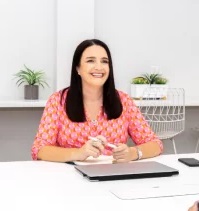
Top 10 Tips For Monitoring Your Google Ads Campaign
A Google Ads campaign can work wonders for your online business, but you also need to work on it to ensure it maintains momentum and effectiveness. And importantly, you need to ensure it delivers an ROI that meets your expectations.
Many people fall into the complacency trap when it comes to Google Ads, expecting results to simply happen. But it’s not a ‘set and forget’ process. Far from it.
A critical success factor is optimising the campaign on an ongoing basis. Of course it’s important to spend time and effort planning and setting up your Google Ads campaign, but it’s equally as important to measure and analyse results in terms of your business goals. You need to make sure your customers are getting what they want and that you are getting a good return on your investment – and ongoing management enables you to continually make improvements and adjustments to your campaign to achieve optimum outcomes.
So What Does Optimising and Monitoring a Google Ads Campaign Involve?
Things change rapidly and what you thought was the perfect set-up may quickly prove to be ineffective. Your research may have produced what seemed to be the most relevant keywords and you probably spent hours creating ad copy that sounded sound spot-on , but it’s only when your ads go live that the truth will reveal itself. And that truth may hurt. No doubt you’ve got some things wrong, but there’s always opportunity to improve IF you monitor your campaign!
I’ve been in the digital marketing industry for decades and Google Ads has always been one of my favourite components of my clients’ SEO campaigns, but I know from experience how critical it is to manage and optimise the ads in order to extract maximum value.
So, once your Google Ads campaign is up and running, here are my top 10 tips for monitoring it and getting the most from it:
Tip # 1: Check Your Spending
Crunching the numbers of your Google Ads budget takes a bit of doing, but a little effort can pay off big time. You need to work out what you can afford to pay for a conversion (which could be an e-commerce sale, a phone call, a request for a demonstration or a quote etc) and then measure the conversion rate for each keyword with Google Ads conversion tracking. Once you have information on how, which and when keywords are performing, you can tailor your spend accordingly and ensure you’re getting a good return on your investment.
Tip # 2: Keep Click-Through-Rates (CTRs) Above 1%
You should look to make improvements wherever possible to improve conversions and decrease your cost-per-click. Ideally, your CTR rates should be kept above 1%. Compelling ad copy is key to maintaining adequate CTRs.
Tip # 3: Focus on Negative Keywords
People put a lot of effort into researching keywords for their ads, but you should also research keywords that will prevent your ad from being displayed in response to searches which include those terms. If you don’t focus on negative keywords, you will simply be throwing money down the drain with wasted clicks that don’t generate income.
Tip # 4: Keep Researching Positive Keywords
There are plenty of ways you can research and find keywords, starting with your search terms report. You’ll only know how a keyword phrase is performing once it goes live, so it’s vital to fine-tune your selection on an ongoing basis.
Tip # 5: Use Quality Scores to Find the Right Keywords
Google rates each of your keyword phrases in terms of the expected click-through rate, the relevance of your ad and how users behave when they arrive on the landing page. They do this by with a Quality Score with ratings going from 10 (highest) down to 1 and you can find these scores by first clicking the ‘Keywords’ tab and then clicking the white speech bubble adjacent to each keyword. Ideally, keywords with a Quality Score of three or lower should be removed and you should investigate the others to see where improvements can be made.
Tip # 6: Check Your Bounce Rate
Why aren’t users staying around? Is it a keyword problem or perhaps the quality of your landing page isn’t up to scratch. If your bounce rate at ad group level and/or keyword level is above 50%, you need to investigate the reasons why – and take action. For example, the landing page content may need to be more focused on the targeted keyword in the ad, pages may be slow to load or there may be a technical issue.
Tip # 7: Use Google Analytics
Basically, Google Analytics is a valuable tool that tracks and reports website traffic, helping you understand how users are engaging with your site so you know what’s working and what’s not. It lets you measure your advertising ROI and will provide you with greater insights into your Google Ads performance.
Tip # 8: Look at Campaign Performance in Terms of Device, Geographic Area and Time of Day
As you get further into your Google Ads campaign, you should investigate how it’s going in terms of specifics so that you can target keywords accordingly. Things to consider include what type of device potential customers are using (eg mobile vs desktop), where traffic is coming from (what country, state, suburb etc) and how your campaign is performing at different times of the day or night.
Tip # 9: Check Out Your Competitors’ Ads
Review what your competitors are doing and look at your and their ads from a prospective customer’s perspective. Whose would you choose and why? Make sure your unique headline sets you apart from the competition (as well as being 100% relevant to the prospective customer of course!).
Tip # 10: Review Your Ads for Special Offers
When you’re monitoring your Google Ads campaign, consider if there are special offers that you can add to make your ad even more compelling and enticing. Giveaways, free gifts with a purchase, special discounts etc can all be effective ways of generating leads.
Bonus Tip: Don’t Forget Your Landing Page
Even if your ads are correctly targeted and your ad copy is on point, your campaign won’t be cost-effective if your landing page isn’t properly optimised to convert traffic into leads. Never use your home page as your landing page as it will be too general in nature, rather make landing pages the product/service specific pages which are highly relevant to the offer/keyword in your ad. If you have multiple ads and offers, you will reap dividends if you spend the necessary time and effort into creating different landing pages which are congruent with what your ad has promised. Things to consider include compelling headlines, the benefits of your product or service, details of the offer, testimonials and a call to action.
As mentioned earlier, a Google Ads campaign won’t deliver a ROI if you simply ‘set and forget’. Ongoing monitoring and maintenance is required to get the most out of it.
If you want to optimise your Google Ads campaign or are struggling with your website’s visibility and need to go from being a secret to being an online success, my new step-by-step SEO course could be just the ticket.
Using my decades of experience as an SEO specialist in Perth, I designed The SEO School especially for small business owners who want to get searched online, get seen AND get sales. The SEO School is a DIY step-by-step modular course, so you can do it in your own time at your own pace – plus you get exclusive FaceBook support from SEO experts if you need help. Find out more about The SEO School here.
FREE Community
Are you frustrated customers can’t find your website?
Join my FREE online community for SEO tips!
seo Freebies
Are you the best kept secret on the internet?
It’s time to change all that with my DIY SEO freebies!
The SEO Course
Do you have a website that’s not performing? Learn SEO and put your website to work!
Other Blog Posts...
We talk about how technology and digital communications have literally put the whole world at our fingertips, but the reality is that we still love local. And that’s why we have to love local when it comes to SEO. Why does local SEO matter? Local SEO is important because the days of relying on a Yellow Pages
AI is on everyone’s lips. All the talk is about what AI can do and what it is going to be able to do. Some people even have it taking over the whole world, sending humans into a life of servitude to machines and computer systems. Should we fear the future? If you’re a content creator, here’s some good news. This
It’s no secret that SEO requires a multi-pronged approach in order to be effective. Some elements are simple and easy to implement while others require more technical expertise, but each one plays a role in great SEO. This article covers one of the most important elements of SEO…backlinks. Backlinks are links to
Want free SEO support?
Then join my Facebook community…

If you’re looking for a supportive online group that share the same mission – to get found online – then this community is for you!
From SEO updates and tips to Ask Me Anything Fridays, this is your space to pick-my-brains.








